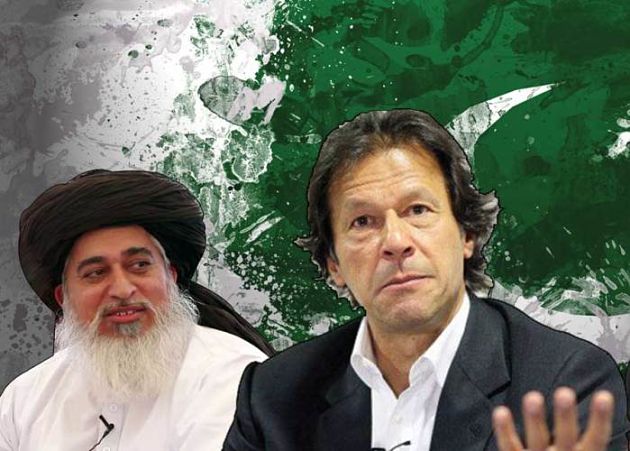In Pakistan, the case of Asia Bibi, discussed in yesterday’s Voice of Islam, has continued to develop. It has become so significant that the recently elected Prime Minister of Pakistan, Imran Khan, had to intervene in the situation and address the nation.
First of all, it is important to clarify why the events taking place in Pakistan have such great significance beyond its borders. There are two reasons.
First, Pakistan is essentially the largest Islamic country in terms of population. Although it has a smaller population than Indonesia (197 million and 264 million respectively), it is the only Muslim country to possess nuclear weapons. When discussing any hypothetical plans or projects involving Muslim regional powers such as Turkey or Saudi Arabia acquiring nuclear weapons or initiating a supranational Islamic nuclear program, Pakistan is considered a key participant in such projects and initiatives due to its technological capabilities and skilled workforce.
Second, the issue that is arousing such heated emotions is not only about the status of non-Muslims in a Muslim country, as it may seem, but also about the status of Muslims in non-Muslim countries, which are increasingly interconnected in a globalized world. In the UK, for example, there are over a million Pakistanis, many of whom are mayors (including the mayor of London), lords and barons, successful businessmen, journalists, politicians and managers. By comparison, the position of Christians in Pakistan appears much more modest, and for objective demographic reasons this is unlikely to change. However, there is a difference between the objectively modest position of the Christian minority in this Muslim country and the persecution they face, which is effectively advocated by certain religious groups in Pakistan. This issue affects not only the interests of the country, but also the interests of Pakistanis abroad and other Muslim minorities. Let’s discuss the developments.
In response to the decision of the Supreme Court of Pakistan to acquit Asia Bibi of blasphemy charges due to lack of credible evidence, Khadim Rizvi, one of the leaders of the Tehreek-e-Labbaik Ya Rasool Allah (TLYRA) movement, called for the killing of all the judges who made this decision as well as the commander of the armed forces who supported them. He publicly declared them to be «wajib-ul-qatl», i.e. people whom every believer is obliged to kill and for whose killing he will be rewarded.
It is worth noting that in Pakistan, such calls can and have had far-reaching consequences. Previously, the governor and a minister were killed for defending Bibi after similar calls. The killer, Mumtaz Qadri, was eventually executed, but he became a hero to millions, and his funeral led to mass demonstrations and unrest.
But calling for the assassination of senior government officials, not by an underground group but by an influential religious leader of a major legal party, is an open challenge to the country’s security. In this regard, the new leader, Imran Khan, had to address the nation. In his speech, he emphasized that the Supreme Court’s decision was in line with both the country’s constitution and Islam. Many Pakistani scholars, both inside and outside the country, agree with this view. He also condemned the calls for the assassination of the Supreme Court judges and the army chief, stressing that the state would take stern action against anyone who tried to carry them out.
Interestingly, however, in any other country, including Western democracies, a person who publicly calls for the assassination of the Supreme Court judges and the army chief, as well as any other official, politician or citizen, would be immediately arrested. Pakistan, it seems, is much more «liberal» in this regard, as the head of state merely condemns such calls and warns against carrying them out.
On the one hand, in the midst of a multitude of openly tyrannical regimes, the existence of freedom of speech and association in Pakistan, used by Islamic groups and movements, is encouraging. On the other hand, freedom also entails responsibility, including that of religious scholars, who in this case assume the authority of the state that guarantees their freedom.
As mentioned earlier, Pakistan is a country with the largest Muslim army and nuclear weapons. Calling for the assassination of its army chief for expressing a position that is controversial among scholars is nothing less than an attack on this army, the country, and thus the entire Islamic Ummah, whose interests are affected.
Incidentally, it is worth noting that during the pre-election campaign, Tehreek-e-Labbaik Ya Rasool Allah supported Imran Khan, who promised, among other things, to uphold the law criminalizing blasphemy. Despite pressure from certain Western and pro-Western circles, he has stood firm.
However, the issue in this case is not the removal of the punishment for blasphemy, but the unproven nature of blasphemy itself. This can only be determined by the court, which made the decision after nine years of hearings (during which the accused spent time in prison). To then call for the execution not only of Asia Bibi but also of the judges and anyone who supported them is nothing but vigilantism, unlawful takfir, and an attack on the Islamic Republic of which Pakistan is a part. A large number of Pakistanis, including many scholars, believe that the time has come for the state to put an end to extrajudicial killings and the impunity of those who advocate them, regardless of where they come from.

